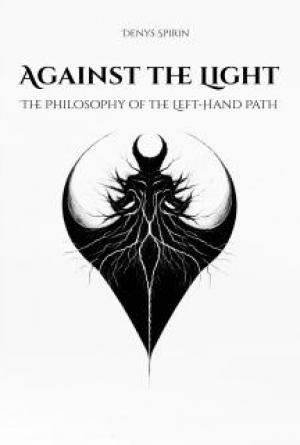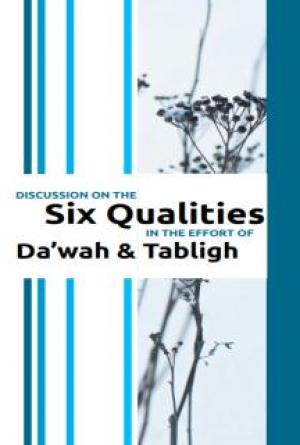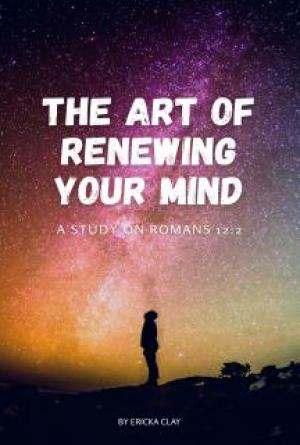Introduction
In 2007, a friend challenged my devotion to one of Christianity's most widely-held doctrines. He
asked me to reconsider my position on the doctrine of Hell. His challenge led me to research
Hades, Gehenna, Tartarus, and Sheol (the Greek and Hebrew words that have been translated
to read "Hell" in our Bibles).
I initially intended to prove to my friend that there was indeed a Hell, and that God would
really send non-Christians to suffer there for eternity. Instead, my research led me to ask
questions that I had never asked, to wonder things that I had never dared to wonder, and to
draw conclusions that were far outside the bounds of orthodoxy.
At first, I kept my findings to myself. I was afraid that my church would force me to leave my
position in leadership if they learned of how my beliefs had evolved. (I ended up leaving on my
own without ever sharing my beliefs about the afterlife with anyone at the church.)
My "Hell" findings remained housed in my heart and mind until 2010 when I launched an
anonymous blog called "Jesus Was A Heretic, Too". I wanted to make peace with the
Christianity that didn't seem to have a place for me anymore, and for reasons that I don't quite
understand, I felt that the blogosphere would be a good place to do it.
Through the magic of Google, my blog posts about Hell were discovered and suddenly-- I had
an "audience". I organized the posts about Hell into a series called "One Hell of a Lie," changed
the name on the blog to my own (thereby jettisoning my anonymity) and began to write boldly
about the theological questions that most of us are afraid to ask.
Nowadays, the blog is called the "Diary of a Christian Universagnosticostal". I write about
theology and religious pluralism, and I've found a welcoming spiritual space in expressions of
Unitarian Universalism.
This book is mostly a compilation of the posts about Hell and Satan that started it all. (Chapters
one and two were written specifically for this book. The other five chapters are versions of older
blog posts. They have been expanded for clarity and edited to read more formally than their
bloggy predecessors.)
4
This book began with one conversation and took shape through a series of many others. I hope
it's a conversation starter for you as well-- a conversation starter that will help you and those
around you to rethink your assumptions about God, Jesus, theology and the afterlife.
Enjoy.
5
1 One Hell of a Question
“I just don’t believe it, Crystal-- and frankly, I can’t believe that you believe it.”
My friend Charles and I had been on the phone for more than an hour. He was a former
Christian turned agnostic who was skeptical of organized religion in general. I was a lay
minister who enjoyed apologetics. We were talking about the afterlife when the subject of Hell
emerged.
“I have daughters. They screw up all the time, but I would never harm my daughters--
let alone incinerate them. Never. How can someone claim to love you and then torture you? Is
this God’s only recourse for correction?”
I was extremely frustrated. “Charles, if we break the law in our city, we go to jail. How
can we accept the consequences of our actions in this life without acknowledging that there will
be consequences in the afterlife?”
Nothing I said mattered to him. I couldn’t quote enough scripture to convince him that
Hell was real, or justified, or God’s will. We had reached a stalemate.
“I bet if you searched hard enough, you’d find the controlling, sadistic puppet master at
the root of this Hell thing. And I bet you he’s human—just like you and me.” Charles was the
king of sarcasm. I could hear the smirk in his voice, but I was not amused. I couldn’t believe his
pridefulness.
We had talked about scripture and theology, morality and reason, sin and justice. I was
tired of defending my beliefs… tired of trying to explain God’s plan to balance the scales in this
world and in the next. I was ready to throw in the towel. I needed some sleep.
“It’s eleven o’clock,” I said with exhaustion. “I’m going to bed.” We hung up. I prayed
for him and climbed into bed, but I didn’t get any sleep that night. Despite my inability to agree
with his arguments, I couldn’t escape a few powerful things about Charles’ position-- things
that could not be easily dismissed.
6
For instance, I had never heard God described in the way that Charles talked about him.
A torturer? I thought about this for hours…
“Am I worshiping a torturer?” I would silently think those words before quickly
pushing them out of my mind. “The devil is the author of lies,” I said to myself in response to
that thought. “God is love and this torture thing is a lie designed to turn me away from God’s
truth.”
I wrestled with this all night, but my internal dialogue didn’t satisfy the tension I felt in
my gut. I suddenly understood how Charles could have trouble reconciling those two radically
different depictions of God. His struggle resonated with me because I was having the same
problem for the first time in all of my years as a Christian. “Does this make sense?” I continued
to think about the lover vs. torturer question, but with no answer.
In the weeks after our discussion, there were several questions about Hell that plagued
my mind. For instance, Charles pointed out that Jesus told the disciples to forgive their
trespassers as many times as necessary in the interest of maintaining those relationships1-- but
the traditional Hell doctrine seemed to depict a God whose forgiveness was both limited and
conditional.
Charles also asked me why the Bible didn’t talk more about “unsaved” children or the
fates of adults who lacked the mental capacity to believe in Christian doctrine. “If eternal
torture awaits the unsaved,” Charles inquired, “then why didn’t God talk more clearly about
his plan for those who lack the intellectual capacity to choose the right religion?... And if a
woman were to approach me yelling ‘Help! My husband is demanding, and he hurts me when I
don’t obey him,’ I would tell her to leave as quickly as possible… but your religion says the
same of God while telling people to run toward him. Why?”
Suddenly, I boldly wondered: Is a God who threatens eternal punishment for temporal
disobedience any different than an abusive husband? Am I wrong for telling people to run toward my
depiction of God? Is this theology harmful? These were things that I’d never considered before, but
I lacked the answers I so desperately wanted. And the questions didn’t stop. I would never
have admitted it to Charles at the time, but I suddenly had more questions than answers.
For instance, I believed that the only guaranteed road out of Hell was the Protestant
Evangelical way. This involved repentance of sin and asking for Jesus Christ’s free gift of
salvation. I also believed that Jesus could return to rapture the Church at any time-- however, I
also knew that only around 7% of the world’s inhabitants were Protestant Evangelicals. (That’s
roughly 550 million people.) I wondered if God would really destroy more than 90% of the
world’s population in the twinkling of an eye.2
7
Furthermore, I wondered what had become of the non-Christians who died in
generations past—a seemingly infinite number of people! Had God destroyed them, too?
I thought about the places in the world where people are sentenced to death for
converting to Christianity. Would God burn people eternally for what they were afraid to
believe? Would God burn the infidel mother who refused to convert because she feared for her
own life or for the lives of her children? Wouldn’t an all-knowing, merciful God be more
understanding than this?
And what about people who live in the far corners of the earth and have not heard the
Gospel? Romans 1:20 seemed to be the only verse that alluded to salvation for them. Why
wouldn’t God give clearer instructions for a world with a population that he knew would
outnumber his chosen few? Wouldn’t God want us to understand his will? Wouldn’t he want
us to represent him well with clear answers about who would be tortured eternally and who
would not?
Overwhelmed with uncertainty about these matters, I decided to test the waters with my
friend Monica over dinner one night.
“Do you ever think about Hell? I mean—really think about what the Bible says about
it?” She laughed and playfully rolled her eyes. “No. I’m going to heaven. I don’t need to think
about Hell.” (Yes. She really said that.)
I responded: “I’ve been thinking about it. I want to know more, but I don’t know where
to start digging for information.” Suddenly, I had her attention. I whispered sheepishly,
“Monica, I used to be sure about this stuff, but now I think I should get a better handle on it.
There are things I once believed I knew, but I am not so certain of anymore.” She was the first
and only person that I had told about my uncertainty. I was embarrassed to admit that I was
having such doubts.
Monica looked me in the eyes and said with a steady tone, “Crystal, you should avoid
the temptation to try and discredit God’s Word with humanistic reason. Remember: The Bible
says that God confounds the wise.”
God confounds the wise. I had used that verse of scripture in conversations with
others—even with Charles. I realized that I had used it in the past to discourage others from
wrestling between faith and reason. I had always told people to side with faith— often against
my own best judgment. And I had always sided with faith myself. Had I done myself a
disservice?
8
I decided to pull out my study tools and try to piece together an understanding of the
afterlife, but I found that I still needed more information. I found that my studies were limited
because every commentary I owned, every resource I consulted, and every voice I listened to at
the time already agreed with my previous points of view. This was not by accident—over the
years I had made it a habit to dismiss arguments that did not fit my own preconceived notions
about God and doctrine. I believed that any exploration outside my realm of beliefs was only
acceptable when done for the purpose of apologetics. Intellectual exploration was fine, as long
as it led back to square one… back to the orthodoxy of my tradition. It became clear to me that I
had been trapped in an echo chamber. For the first time in my life, I saw this as a problem.
Climbing Outside the Box
After a great deal of reflection, I remembered that the scriptures teach us to love God
with our hearts, souls, and minds3. Intellectual love is grounded in curiosity and promotes an
ever-expanding realm of knowledge. We are taught to seek God continuously, to ask for
wisdom with a sense of expectation4, and to knock relentlessly5 at the door of the Wise One.
Most astoundingly, we are told to worship God in spirit and in truth6. We are told to desire
truth because God desires truth, and that God is Truth. Seeking God and seeking truth are not
sins. The intellectual pursuit of truth is the will of God for humankind.
When I realized that God expects humankind to explore, I became curious about his will
for that exploration. What would God expect me to do if I ever learned an uncomfortable truth?
And beyond God’s expectations, I wondered: What would the interpersonal consequences of
such a study be? Would I be blackballed for asking too many questions? Could I be ostracized
for reaching the wrong conclusions?
Those thoughts were too uncomfortable to entertain, but I knew that I wanted to know
more about what I was teaching the children in my Sunday school classes and the homeless
men and women on the street. I needed to prepare myself for future conversations about eternal
damnation. It was my responsibility to know more.
With great curiosity, I decided to pursue the study of Hell. I decided that if I could not
find sufficient evidence to discredit my belief in Hell, then I would continue to accept
Christianity’s traditional teachings about the afterlife. But if I found good reason to reconsider
my position, then I would do so. I knew that God was tough enough to withstand my
questions—so I decided that I was going to ask them boldly, without holding back.
In the months that followed, I began to research the afterlife for myself. I hope you’ll let
down your guard for a short while and review the information with curiosity and objectivity.
9
2 Finding the Beginning
In the world of commerce, the chain of production begins with an idea, which leads to
an invention, which leads to manufacturing, marketing, and eventually the marketplace. This
process culminates when the consumer purchases the product. The purchaser is known as the
end user, or the person who uses the product at the end of the production cycle.
As end users, most of us aren’t as interested in the process of production as we should
be. We don’t usually know how our shoes were manufactured or where the materials for our
car seats originated. We simply enjoy the benefits of the products we use.
However, there is a growing segment of end users who are researching the origins of the
products they buy. Those who undertake such research will tell you that it isn’t enough to buy
products that have been wrapped in recyclable materials by the manufacturer. They want to dig
deeper to find out if the animals involved were treated humanely and if the company’s
employees were treated well. They may even want to know if the manufacturer’s suppliers
used recyclable materials. These end users reach deep beyond the surface (or the wrapping) to
make sure their choices meet the gold (or green) standard.
Like the world of commerce, the Christian religion is mostly a culture of end users. We
enjoy the many beautiful elements of our faith, but are usually unaware of their origins. The
average church member is unaware of how the Bible came into existence. We don’t typically
know the names of the church fathers (or what a church father is), or the difference between a
Sadducee and a Pharisee. We don’t usually know where our doctrines came from, or who was
involved in deciding what would be orthodox and what would be considered heresy.
As religious end users, we read our Bibles through the lenses of our own modern
Western experiences and cultures, instead of reading them through a first-century Eastern lens.
We are interested in what our faith means to us now and what it will mean for us in the future.
I am proposing that we must reach beyond our modern doctrines about Hell to find out
how they came into being. We must take a trip to Christianity’s manufacturing plant and
10
examine the machines therein. In doing so, we must step out of the role of the end user and step
into the role of the supplier’s examination crew. We will examine the earliest components of the
“Hell” concept and reconstruct them again. This will help us to decide if our current
understanding of Hell is contextually accurate.
Journey to a Foreign Land
Like most Christians, I originally began my study of Hell by examining first century
Jewish theology. I did this for two reasons:
First, I assumed that everything I needed to know could be found between the two
covers of my Bible. My worldview didn’t offer space for an ancient narrative that began outside
my tradition.
Second, I believed the first century Jewish Christians passed their beliefs about Hell on
to the early Church, and that the early Church passed their beliefs on to the Catholic Church.
The Protestant Church, from my former understanding, carried on most of the beliefs held by
the Catholic Church—and the modern Protestant Church to which I once belonged had carried
on the tradition as well. However, during my research, I discovered that although the early
Church is a good place to start, its resources only offer a shallow exploration of the topic.
Afterlife theories involving underworlds (or “Hells” as we currently understand them)
actually predate Jewish thought, which means that a more thorough study requires us to ask
where the first century Jews got their ideas. When we ask this question, we find that we cannot
discuss first century Jewish thought without exploring the afterlife beliefs of the Israelites in the
Hebrew Bible. (Judaism and the religion of ancient Israel were somewhat different.)
I further realized that in order to discuss Ancient Israel’s views of the afterlife, I needed
to explore the culture in which their beliefs were born. Theologians have long recognized that
the Israelites did not exist in isolation, and that they were not always dominant players in their
historical settings. They were a culture within a culture. They lived in real places with real
people, and were subject to real cultural influences. Those places were Mesopotamia and Egypt;
two ancient power centers with theocratic governments and deep-seated religious beliefs that
are of great importance to the history of Israel.
The religious stories of Babylon and Egypt were so powerful and so culturally important
that the Israelites crafted similar tales rival their neighbors. For instance, scholars have long
marveled at an ancient myth in which a god created light on the first day, the “firmament” on
the second day, the soil on the third day, followed by the heavenly bodies and humankind
before resting at the end of his exploits. However, those scholars aren’t reading the Bible.
11
They’re reading the ancient Babylonian myth of the Enuma Elish which was written long before
Genesis.
Throughout modern history, people have also studied the story of a worldwide flood
sent by a deity to destroy everyone except one righteous man, a few other humans, and his
meticulously-crafted boat. This man employed birds as messengers to tell him when the flood
was over. However, the man in this story was not Noah. He was a mythological character
named Ut-Napishtim, and his story is believed by many to predate the Noah story.
Additional parallels have been drawn between the Law of Moses and ancient
Mesopotamia’s Code of Hammurabi. Equally-striking resemblances exist between the Ten
Commandments and a small section found in Egypt’s Book of the Dead.
Israel has a long history of co-opting local ideas into its own understanding of the world.
This should not be understood in a negative light. It is merely a part of what it means to live in a
thriving culture. Just as globalization has changed what it means to be a citizen of the world in
the modern era, culture-mixing was unavoidable in their world as well.
The Israelites’ tendency to borrow existing myths about creation to build their own
cultural identity shows us that they had real questions that stretched beyond their scientific
capabilities. Much like us, the Israelites were curious about the issues that impacted their
society, their families and their religions. This curiosity would have, of course, extended to their
uncertainties about what happens to humans when we die. It was the Israelites’ desire to
understand the unknown and their urge to make sense of death that inspired their earliest
theological explanations for the afterlife.
The Ancient Underworld
Contrary to popular Christian belief, the Israelites did not believe in any concept of
“Hell” as we understand it today. They believed in a place called Sheol. The word Sheol means
“the unseen place” or “place of the dead.” This belief persists in many expressions of
contemporary Judaism. Many Jews believe that each person (whether Jew or gentile) will
undergo a purification in Sheol for 11 to 12 months (or less in some cases). After purification,
souls are sent to live in eternity with the Creator. There have never been (and still aren’t any)
flames, devils, demons, or other ungodly spirits present in Sheol or the “place of the dead.”
According to an article on Aish.com, Sheol isn’t and wasn’t a place of eternal
punishment because “the Almighty’s justice [would not be] served by punishing someone
forever.” God’s justice would have been finite and appropriate, not overbearing and
treacherous. One suggestion was that a punishment might’ve require the offender to stand in
12
the presence of God’s unfiltered holiness and experience shame or embarrassment that we
cannot fathom in the natural realm.7
Hades: The Man & The Myth
The concept of a torturous, demon-governed “underworld” was not popularized until
around 400 years after the institution of the Jewish Law when Homer’s myths about a god
named Hades began to circulate. Hades, according to the ancient Greeks, was the “god of the
underworld” and the brother of Zeus. His underground realm was named after him and was
widely believed to be where souls went after death.8 Hades often fought with another god
named Thebes who wished to free tortured souls from Hades’ eternal captivity. Similar myths
about a man named Tartarus began to circulate in 400 BCE. Tartarus also ran a scary
underground abode for tortured souls, and yes… he named it Tartarus… after himself9.
It is important to note that the Jewish people maintained their beliefs about shadowy
Sheol through the fourth century when Alexander the Great conquered Palestine. After the
conquest, the Greek and Jewish societies merged into something called Hellenistic Judaism, a
union that would last for 600 years. Although the Jews continued their minimal beliefs about
the afterlife, Christianity (born in that Hellenistic society) did not. Christianity emerged in a
society that was heavily influenced by Judaism and Greek myth.
The Jews and Hellenists split in around 200 CE10, but the influence of Hellenism on their
world is evident in the Bible to this day. For instance, the influence of Greek mythology is can
be seen in 2 Peter 2:4 which is where Paul talks about God sending angels to a gloomy “Hell”.
The word used for Hell translates to “Tartarus” in Greek. Appearances of the word “Hades” are
found in the New Testament, and can easily be attributed to the Hellenistic influence that
would have existed when those biblical documents were written. Coincidentally, the words
Sheol and Gehenna were also translated to “Hell” in the Bible. (We’ll review all of those verses
in chapter three).
Life Imitates Dante’s Art
Hell became a thing of immense interest and terror in the 14th century when an Italian
poet weaved a wildly imaginative tale called The Divine Comedy. Divided into three parts,
Dante’s epic story took the reader on a guided tour through the morbidly frightening annals of
Hell, purgatory, and paradise (labeled the Inferno, Purgatorio, and Pa







